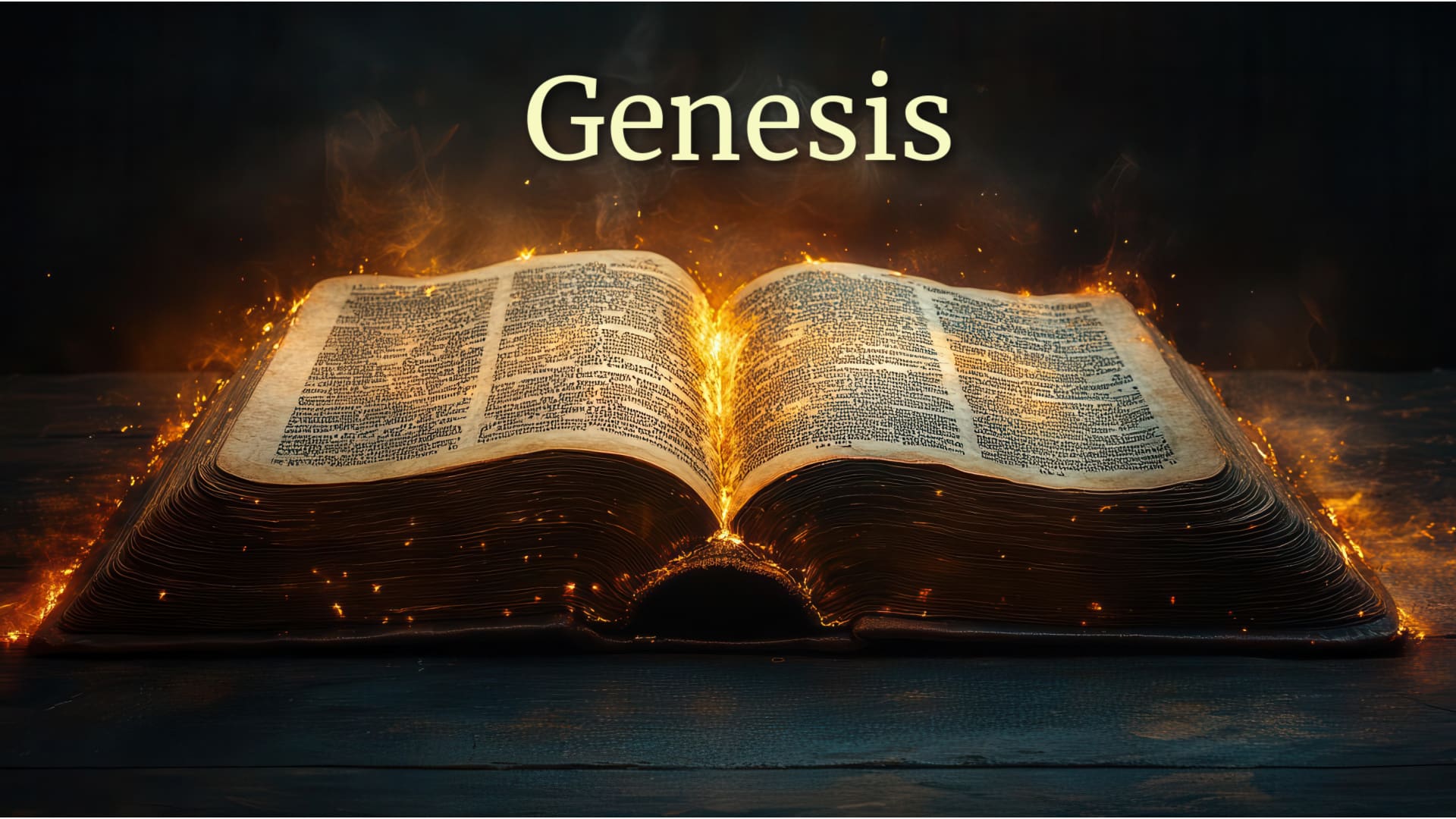
God’s Temple and Evil
Now the serpent was more subtle than any other wild creature that the Lord God had made. Gen. 3:1
We have seen that God created His great temple from the very chaotic elements of the watery deep, formless earth, and darkness. The great paradox is that He created something so firm and enduring on something so unstable as the watery deep: “… for he has founded it upon the waters, and established it upon the floods” (Psalm 24:2). This explains the human perception that things are both stable and chaotic at the same time. Again, God’s cosmic temple is not declared “good” because it is devoid of danger and potential ruin, but good for His purposes. Though it is certain God created the chaotic elements (e.g. darkness, Isa. 45;7), it is equally certain He did not create evil which these elements came to symbolize. Evil is not something outside of God’s sovereign plan, for the very structure of the universe with its binary opposites was built to accommodate it. On the other hand, although God can be said to be responsible for His creation as Creator, God is not responsible for evil; its origin lies elsewhere.
The creation narratives as well as the fall narratives (Genesis 3-11) give us no clue at all concerning the origin of evil. We do know, however, that the physical realm “earth” was made at the same time as the “heavens” (Heb. šāmayim). This word is a dual, which, as we have seen already, denotes the upper immovable realm of the stars from the lower heavens of weather and the movable celestial bodies separated by the great dome, or Temple Ceiling. This upper realm of the stars symbolized the spirit world that was made in conjunction with humanity and the material world. The ancients believed that the two worlds, both the spirit world and the physical world, mirrored one another. Events of earthly kingdoms are directly associated with the spiritual world, the world of spirits (e.g. Dan.10:13). If there was a “fall” on earth, this reflected a “fall” in the spirit realm. The ancients naturally understood that the physical and the spiritual were necessarily linked. This understanding is lost to modern thinkers, and so it is that modernity has no reference point when it comes to explaining the existence of evil.
But where in Scripture do we go to see this heavenly “fall”? The two places are found in highly poetic prophetic texts. The earliest text is Isaiah 14:3-20 where the prophet likens Babylon and its king to a star that with pride determined to ascend above all the other stars and make itself God, but was brought low in judgment to Sheol, the “underworld” of fallen spirits. The second text is Ezekiel’s lament over Tyre in chapter 28;11-19 where this ancient seafaring nation is likened to a primordial spirit in the heavenly mountain paralleling the garden of Eden that fell through pride. It is clear that this imagery, though applied to historical nations, assumes a fall in the heavenly spiritual realm. Thus we have the ancient cosmological belief in Israel that a mighty spirit rebelled against God in heaven out of its own accord, and thus the origin of evil. (Tolkien in his Silmarillion envisions God creating spirits to move and sing in harmony a song of joy before their creator, powerful and free. One powerful spirit decided to alter the song to its own liking, thus falling out of harmony with the heavenly song. This is apt imagery to describe discord between a created will and the divine will.)
But when did this happen and how does it relate to the human fall? There can really be only one answer for this given what we have said. We must see the heavenly fall and the earthly fall in tandem, for the two realms are inseparable. The heavenly “mountain” of God and the earthly Garden of Eden fell together. “Satan” (if we can give him a name at this point) fell from His exalted position before God by pride, and then determined to corrupt the imago dei in man, recreating him into his own image, the ultimate act of creaturely hubris.
Evil is a product of free will built into the creatures God made. Since God did not make sin, it is alien to nature, and has no necessary link to it. However, God’s cosmic temple was defiled, the holy of holies, the garden planted by God, no longer accessible. Humanity is redeemable because sin did not originate with him, but with angels self-corrupting into demons. The temple still stands, but without the garden, it is diminished in glory, and awaiting its redemption. This “myth” cannot be proven by reason and the secular world rejects it out of hand, but there is nothing more sublime in the whole world of human thought than this cosmological framework that these early chapters in Genesis give us.
Takeaway: God is not the source of evil; He makes room for it in His cosmic temple as a necessary corollary to free will.
Question: Modern skeptics like to ask, “If there is a God, why all the evil in this world?” He must either be either incompetent and muffed, or perhaps even evil. How do you respond to this?
0 Comments